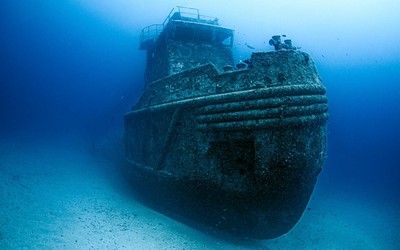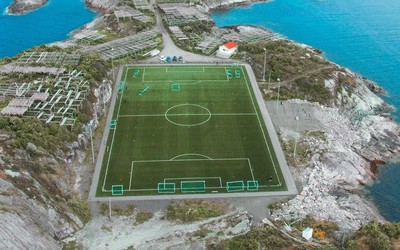
History of chess in cafés
hello everyone, this time I wanted to do a historical blog on an important subject in the history of chess: the influence of cafés on the practice and popularization of chess. you know that chess had a reputation until the end of the 19th century as a leisure activity for the rich bourgeois, aristocrats or intellectuals. This was somewhat true, because if you look at the history of chess, you will see that in the earliest history or chronicle of chess, kings, princes and ecclesiastics were the only ones who had time to play. the situation was no more different in Asia than in Europe, where chess also remained a high-caste pastime. this is explained by the meaning of the game of chess which, as strategy games, is originally made for people with experience in real battle strategy, therefore the highest echelons of a kingdom or country.therefore, the question of our essay will be: how chess first arrived in cafes, and how the presence of this game overturned certain prejudices and allowed a greater popularization of the game, until arriving as a popular game , then a sport.
chess has always had this unpleasant but sometimes true image of a good, friendly moment between two intellectual people, where the game is only a pretext for discussion. certainly, conviviality is the basis of any chess club worthy of the name, but most know that I insist that chess is a sport. but they were not before the first national or international championships. so I have to bow that chess is a game turned sport, which is similar case to football and basketball.
but how did chess arrive in cafes?
many people are unaware that the Café as a restaurant, as a place of relaxation, was not born in the West but in the East: coffee as a drink was discovered in what is now Ethiopia and quickly became known by the through merchants from throughout this area as well as Sufi monks. The alleged medicinal virtues of coffee fruit drinks quickly gained lasting popularity in an area between present-day Egypt and present-day India. huge !
- the domestication of the coffee tree allowed lasting popularization across all social classes, and certain merchants had the idea of creating “coffee houses” so that Muslim pilgrims could rest between stages and heal themselves during their travels.
you can imagine that one of the favorite activities of this era was board games and there were many of them... including local variations of chess, (it is better to say that these are early forms of chess). we are therefore in the 16th century, because the first sure and attested traces of café restaurants date from the beginning of the 16th century and developed throughout the Ottoman Empire.
the arrival of chess in the West also happened thanks to the Moorish conquests in the Iberian Peninsula (8th - 13th century ), and at the time when cafes were born, chess had reached in Europe its form closest to what we have today. the time had now come to bring the two together in a global way: at the beginning of the 17th century, travelers brought coffee to major European cities (Venice, Milan, Marseille, Paris, London and then Boston in the United States). and as these travelers saw the Ottoman coffee houses, they decided to create European coffee houses, because the fashion of the exotic and mysterious Orient quickly made coffee houses popular

The firsts steps in Legal and Philidor time
but two emblematic places will revolutionize the practice of chess: the Café Procope and the Régence in Paris, these are cafés popular with intellectuals and chess players because most chess players play for money (chess player was not a profession at that time). among others, regular customers are Enlightenment philosophers and players like Legal, known for his famous checkmate (played in a game with a material disadvantage, precisely to increase the prices of bets!), the strongest players do not hesitate to withdraw pieces or to give an advantage to the weaker player to balance the game. these are undoubtedly the first notions of a match in an open public place to everyone (there was a match at the time of Ruy Lopez, perhaps a legend, which would have been played between Spanish players and Neapolitan players, but in a palace and only for an audience of aristocrats). the notions of simulation and exhibition matches appear, the ideas of enlightenment favor this development of chess, since the great philosophers believe in the existence of geniuses capable, through their talents, of being vectors of truth and therefore of intellectual enlightenment.
* a lot of erroneous information circulates about Legal because his life seems to be poorly documented, even if we know that he was Philidor's mentor and that he was a cultured man, (the formula "de" in his name is generally a sign that he is a noble or an ennobled person), he played several matches against foreign players because the "regency café" became the center of the center world for West European chess from 1720 to 1820
- Similar cafés developed throughout Europe, meeting with great success in England and Germany, and even in the United States, since Benjamin Franklin was a regular at chess cafés.
The chess café in Berlin in 1920-30, the second gold age
but according to my hypothesis, the expansion of chess cafés being linked to the intellectual ideas which circulated in these places, it took periods of crises for chess to become popular again in cafés between the 19th century and the 20th: in fact, the end of the French revolution saw a loss of momentum for these cafés, since they were previously frequented by enlightened aristocrats, but the revolution and then the Napoleonic wars undermined the popularity of chess cafés in Western Europe. nevertheless there remained a strong tradition in Germany, since some historians agree that there was a late German Enlightenment that lag behind France which remained until 1815. during the 19th century, the he emergence of the provincial bourgeoisie allows chess to find a new, more family audience, chess becomes a leisure activity to play at home. but the massive arrival of poor rural populations will also change the situation, in Europe, chess is once again becoming the popular game which had moved away from this in the 18th century.
- So, in Europe, it is thanks to the social position of the café that chess became popular in the 19th century, from an exotic and intellectual place, it became a popular place, restaurant - place of popular life where alcohol finally replaced the precious beverage. thus, chess also becomes a hobby even for a factory worker or an artisan (provided they have the time to learn the rules). And a new public learns the game through oral tradition, which sometimes gives rise to local variations and new rules.
I think that this social and cultural mixing between people of different social positions and different origins is what gave birth to the second golden age of café chess in the post-WW1 period: many immigrants frequented cafés, as well as students and alongside intellectuals or artists, there may be workers who work on the building next door or an immigrant coming from the other side of the continent. and particularly in Germany where the post-WW1 era was a disastrous period, on a human, moral, economic and social level, with nightmarish consequences for all of humanity, consequences of which I do not need to remind you. I said earlier that a socio-economic crisis allows the emergence of popular criticism to which an intellectual elite with revolutionary or radical ideas is attached, and that in this context, the café becomes a place of exchange and chess become a pretext for discussion. the café becomes a place for people ostracized by their ideas or their social status, and thanks to the currents of ideas of the early 20th century and the work on Freud's psychoanalysis, hypermodernists find in cafés the place to prove their theories. it is also for them a sign of provocation in relation to the old generation of players, bourgeois, and who played in lounges, hotels and organized embryonic world championships in English lounges, with cigars and whiskey and lots of smoke.
after Paris in the 18th century, Berlin 1920-30 became one of the world centers of chess, and an unmissable stopover for any future player. Most of Berlin's cafés are colorful places where shows sometimes take place, and all the political extremes of the time, including thousands of students, meet in these places. but it is also a place where a new form of professionalization of chess is born, the tournaments become more popular than the British versions and the players are becoming younger and younger, like Reti for example, but also the café becomes a place of social liberation, since Sonja Graf is the first woman to be a professional player.
but this golden age had a tragic end with the political context of Germany in the 1930s. and some players were persecuted, deported and the luckiest fled abroad.
Modern era
in the 1950s, the café became a place in Europe where relaxation took priority over the exchange of ideas. the goal is to take a moment of relaxation, no longer to remake the world... chess does not change and remains popular and there is no longer any need for the crisis which brought its share of intellectuals and emigrants. and nowadays, the café has become a picturesque place, often a stopover on a trip to a tournament, and today in all capitals or large cities there are cafés where you can order a good dish and a drink and some make friends while playing chess.

Conclusion
So, the main takeaways are that cafes enabled the travel and development of chess around the world, as well as the beginnings of the professionalization of chess. then, the social political contexts allowed the emergence of new audiences and new ideas like the hypermodernist current are inseparable from the practice of chess in cafes. Thanks to some dedicated champions and pioneers, the café has become a favorite place for chess players and a bastion of simple, fun chess, where you can talk, eat, play bongcloud and whatever else you want at condition of being honest and not cheating. stay safe and greetings!

Biography https://en.chessbase.com/post/a-rich-chess-life-berlin-chess-cafs-1920-1933
https://www.history.com/news/coffee-houses-revolutions
https://www.chessjournal.com/kermur-sire-de-legal/
And thanks to pexels for images!
More blog posts by CSKA_Moscou

how to escape the infernal spiral of rating and addiction to fast random games
Yeah, worrying about a number is destructive. sooner or later you will behave like Gollum. But you c…
My advices to Improve your 'Vista' (Vision) in chess !
what do Pelé, Beckham, Beckenbauer, Iniesta have in common with Carlsen, Tal, Liren, Anand? in addit…
Playstyle. The thing they don't want you to understand.
Karpov said: “chess is an art, a science, a sport”. if these words are above all a praise of our bel…
